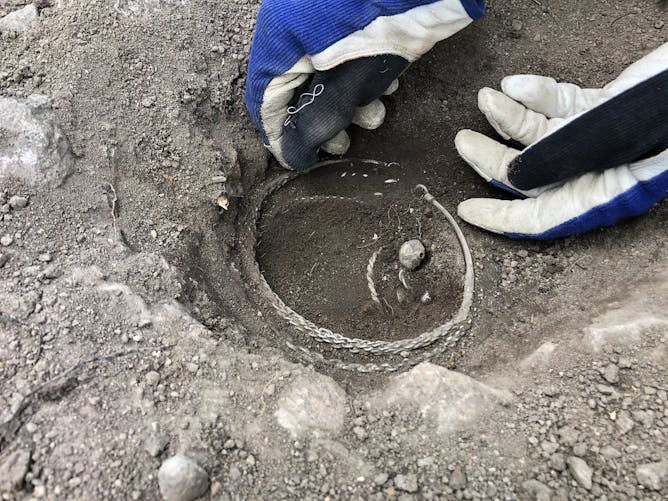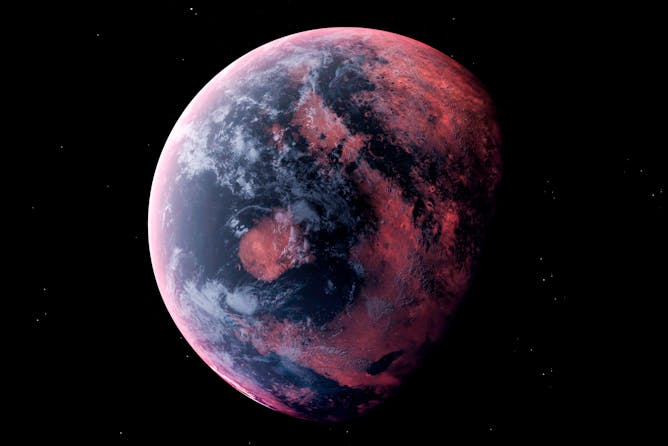|
|
|
|
On our daily walks, my partner and I often bump into other local dog owners. We’ll have a brief conversation, but when we walk away I’ll often have to remind him who that person actually was.
Some people are excellent at remembering faces, while others can’t recognise the faces of even their closest friends. The former are called super-face-recognisers while the latter are said to have face blindness. Others, like my partner and I, sit somewhere in between. Now, new research shows people who are super-face-recognisers are likely to be better at recognising voices too.
The new study is the first to show a link between people with an exceptional ability to recognise faces and those who can recognise voices. It’s also the first to suggest people with excellent voice-recognition abilities might be able to help with policing and security operations.
Meanwhile, archaeologists have discovered an extremely rare Norman coin, the second ever to be found in Sweden, as part of a Viking hoard of silver. Dug up just north of Stockholm, the coin is changing our understanding of French history.
Looking even further back in time, the Earth was completely molten 3.7 billion years ago. Now, the chemical remnants of Earth’s magma oceans have been found in rocks from southern Greenland. The rare rocks have lots to tell us about our planet’s structure, the chemistry of its surface and the formation of its early atmosphere.
|
Abigail Beall
Science and Tech Editor
|

|
|

Can you recognise voices?
Shutterstock/Viktoria Kurpas
Ryan Jenkins, University of Greenwich; David James Robertson, University of Strathclyde ; Josh P Davis, University of Greenwich
The people who are excellent at recognising faces might also excel at recognising voices.
|

The Viking hoard being excavated.
Acta Konserveringscentrum
Jens Christian Moesgaard, Stockholm University
A Viking hoard of silver coins and jewellery expands our understanding of French history.
|

4 billion years ago, the Earth was composed of a series of magma oceans hundreds of kilometres deep.
Larich/Shutterstock
Helen M Williams, University of Cambridge
The rocks provide rare evidence of a time when Earth's surface was a deep sea of incandescent magma.
|
Politics + Society
|
-
John McGarry, Staffordshire University
Your social media comment may prejudice the outcome of a trial, even if you don't intend to.
-
Nina Robinson, Birmingham City University
A large body of research shows the lack of diversity in the UK news media.
-
John Zerilli, University of Cambridge
It would be naïve to think that the rise of science and technology hasn’t made it more difficult to understand the problems we face as citizens
-
Hartwig Pautz, University of the West of Scotland; Stephen Gibb, University of the West of Scotland
After the devastating impact of COVID, changing the culture of social care must start with valuing, respecting and rewarding the people who look after our vulnerable old people.
|
|
Health + Medicine
|
-
Robert C Will, University of Cambridge; Ankur Mutreja, University of Cambridge
Our study found that the bacteria which causes diphtheria is rapidly changing.
-
Ivan Koychev, University of Oxford
The final piece in the dementia puzzle is at the door.
|
|
COVID-19
|
-
Adam Kleczkowski, University of Strathclyde
As the epidemic is increasingly under control, more healthy than infected people will be told to self-isolate or quarantine.
-
Kirsty Short, The University of Queensland
A virologist breaks down everything you need to know about the UK variant.
|
|
Business + Economy
|
-
Robert Kronenburg, University of Liverpool
Performances could return sooner than planned if cities are ready to adapt.
-
Veronika Dolar, SUNY Old Westbury
Although STEM professions, especially tech fields, receive most of the criticism, the numbers show economics is actually worse.
|
|
Environment + Energy
|
-
Robert Watt, University of Manchester
I spoke to dozens of people in the industry, to find out what they do – and don't – believe.
|
|
| |
Featured events
|

|
King's College London, Strand, London, London, City of, WC2R 2LS, United Kingdom of Great Britain and Northern Ireland — King's College London
|

|
Cardiff University, CUBRIC, Maindy Road, Cathays, Cardiff, CF24 4HQ, Cardiff, Cardiff [Caerdydd GB-CRD], CF24 4HQ, United Kingdom of Great Britain and Northern Ireland — Cardiff University
|

|
East Road, Cambridge, Cambridgeshire, CB11PT, United Kingdom of Great Britain and Northern Ireland — Anglia Ruskin University
|

|
East Road, Cambridge, Cambridgeshire, CB11PT, United Kingdom of Great Britain and Northern Ireland — Anglia Ruskin University
|
|
|
|
| |
| |
| |
| |
| |
|
|
|
|
|
|
|